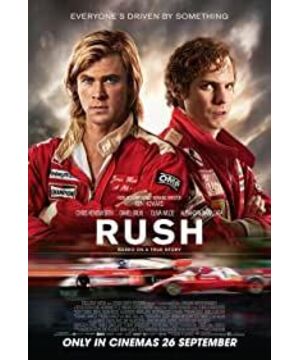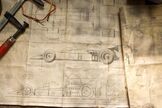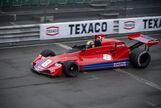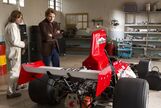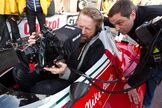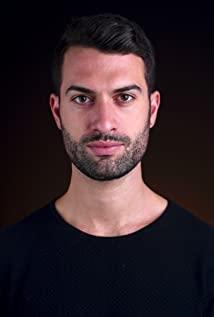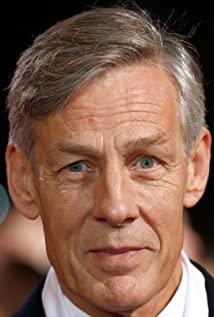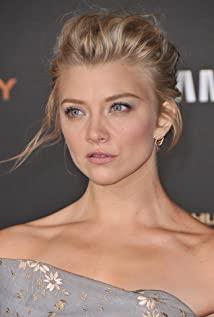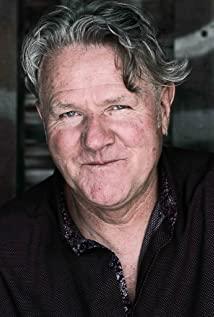This is one of the rare moments in the film when the two protagonists are no longer at each other's throats. In F1 in 1976, the previous champion Niki Lauda and the momentum of James Hunter were fiercely competing; off the field, their tensions did not ease. These two outstanding legendary drivers have known each other since they were still competing in F3, and have since regarded each other as their only rivals. James Hunt, British, with shaggy blond hair and blue eyes. His handsome appearance gave him the capital to indulge, and it also brought him the popularity of an idol star. Hunter believes in "living every day as the last day", surrounded by alcohol and beauties every day, daring to surpass the gap that no one wants to exceed, and even overturning in order to win. His opponent, Niki Lauda, the film's other protagonist, is an Austrian with an ordinary appearance and a pair of front teeth that are often ridiculed for being too large. Lauda's character is rigorous and straightforward, and he is proficient in shunting technology; he acts in self-control, like a precision instrument. The fact that the two people are not happy with each other from the beginning to the respect for each other is a major point of the film; and the collision of two diametrically opposed personalities and outlooks on life is the essence of the film. In one version of the poster, Hunter occupies the majority of the poster, while Lauda is placed behind Hunter, as if dimmed by Hunter's light. In addition, Daniel Bruch, who played Lauda, reported the best supporting actor in various awards. Although it is only a registration strategy, it will undoubtedly create the illusion that Lauda is just a foil. In fact, the image of Lauda in this film is more plump and three-dimensional than Hunter. This stubborn Austrian who is not very enthusiastic about social interaction and has no euphemism in his speech has won people's love and respect with his unrepeatable character and charisma. .
Let's go back in time to 1976. Fate ticks like a pendulum in one of the most legendary years in F1 history. Soon, Lauda and Hunter will face what is claimed to be the most dangerous Nurburgring on the calendar. Between free practice, Lauda walked briskly across the edge of the track with his head lowered, frowning and looking preoccupied. At this point, he was stopped by a fan who asked Lauda for his autograph and asked Lauda to sign the day's date. When Lauda asked why, he got an answer that was by no means unexpected.
- Because this may be your last game.
An angry Lauda turned away. However, this malicious answer was like a sinister prophecy, adding a bit of ominousness to the already gloomy atmosphere. Coincidentally, Senna also said a dejected remark on the day he died on the field. The car god who is always eager to take his life to run laps said: I don't want to drive anymore, I want to go fishing. A prophecy. The details are so dramatic that they tear open a hole, giving a quick glimpse of the present and the future.
On August 1, it started to rain on the field, which was the first time this season that rain has occurred on a game day. Lauda called a meeting and called on the drivers to cancel the race. This move reflects Lauda's prudence and responsibility, but the proposal did not pass. This has something to do with Lauda's overly blunt style of speaking - he told the drivers "I'm faster than every one of you". Lauda is right, he is the fastest record holder on the track, but obviously, no one wants to be pointed out by opponents that their skills are inferior, especially the proud and competitive group of drivers. Lauda did not get the vote he was looking for, and he had to face the game. At this time, he did not know that the shadow of death had already shrouded his head.
The accident happened after Lauda had entered the second lap. Lauda's car veered off the track due to a malfunction, hit the barrier and rolled back into the track with a raging fire. He was trapped in the 400C blaze for almost a minute. Lauda was able to speak and even stand briefly after being rescued, but he fell into a coma after being taken to hospital after inhaling a large amount of poisonous gas that damaged his lungs.
Lauda's injury is very serious. He suffered second- and third-degree burns to his face and hands, and part of his scalp was burned off. One of his ears was half-burned by the fire, and his lungs had all but stopped working. Lauda was thought to be having a hard time surviving the ordeal, and the hospital even invited a pastor to pray for him on his deathbed. But Lauda came to his senses (the first words he said after regaining consciousness were to tell the priest to go away--) and returned to the game in a miraculous time (six weeks after the accident). Ferrari's team manager Daniele Audetto believes Lauda's willpower is the root cause of his quick recovery. Lauda himself described it this way: When he was taken to the hospital, he was very tired, and a strong drowsiness grabbed him, but it was never a wise decision to let himself sleep at this time. He could hear conversations and struggled to figure out what others were saying to keep his brain going. In this wrestling between the will and the god of death, it was the god of death who took back his scythe first. In the movie, Hunter came over happily when he saw Lauda returning to the game, but found that Lauda had a large scar on his face, and his expression of joy immediately froze on his face, while Lauda responded with a slightly self-deprecating expression. The smile that doesn't care much, this clip is very touching. Lauda's response to the indelible scar on his forehead was that "the skin graft won't sweat, so the sweat won't get into my eyes again during games."
This understatement makes one want to stand up and applaud. Lauda casually took off his hat and saluted the audience when he appeared at the Golden Globes in January to promote the film Lauda and Hunt's actor Chris Hemsworth, with the scar still on his forehead, but No one would find it ugly, but more like a medal. A man with an ordinary appearance when he was young, his face has been baptized by years, but his face is both sympathetic and majestic, which is respectable. In the film, Lauda has always been ruthless to Hunter, but when Hunter apologized to him for the accident, Lauda's reply was "Let me go back to the game, you are also responsible". It was a very Hunter-esque expression of Hunter's emotion when Hunter later beat the reporter who had spoken badly about Lauda at the press conference. These two fictional plots effectively demonstrate the skill of screenwriter Pete Morgan. In the end, before the game, the two of them waved to each other from a distance in the car, and their eyes met silently in the heavy rain, which was the best scene in the whole film. This kind of friendship between enemies and friends is also common in Chinese stories. Fair competition is for things and not for people. It is a quality that both East and West appreciate. What impressed me most about Lauda was near the end. After abandoning the race, his teammates asked him if he wanted to tell the media that the car was broken. Lauda asked them to tell the truth. Hunter's fight for his life was a desperate act, and Lauda's exit was not a show of courage. Lauda's helicopter slowly took to the air as Hunt savoured the sweetness of victory. To his wife's worrying inquiry, Lauda replied:
- No regrets, not at all.
How to forget the tone and look of Lauda's Daniel Bruch at the moment. This image is so full and three-dimensional that neither the role of the prototype screenwriter nor the actor can be cut in half. It's a pity I can't let go of Daniel's not being nominated for an Oscar. Making decisions under the domination of ideas and accepting the consequences of decisions calmly is Lauda's strong heart. On the contrary, Hunter, who looks unruly and unruly, has more weakness. The vomiting and shaking legs before the game exposed his anxiety. Those humorous or arrogant words are just the self-protection of the big boy. But remember, bravery and fearlessness are not the same thing. As real as Hunter's fears were, so charming was his frenzy as he sprinted for the title. Instead, the charisma of the characters in the film comes from qualities that seem contradictory at first glance. Lauda's approach to racing has been flat and casual. He said, "We're just drivers," and saw racing as a business, and calmly poured cold water on when Regazzoni said that racing was a passion for dreams; but he was also the one who said, "Since my family doesn't want to help me," he said. , I'm willing to risk losing everything on my own loan." The first paying driver in history, he was a doer who came to the track at five o'clock in the morning to observe the terrain, and put his helmet on until his injury was not healed in order to return to the track. The bloody iron-blooded man on his face. Lauda has no love for racing, of course not, this is a movie about the obsession with racing, like Hunt's manager, the fat man who often cadences and recites Shakespeare's words - little Nurses, men love women, but they love cars more. The deep love in your heart is never mentioned easily. This is the ultimate romanticism. If you have loved, you will know it.
Speaking of Hunter, those who have watched the documentary must be able to feel the efforts Chris Hemsworth put in to interpret this character, but the charm of Hunter in the film is obviously far less than the prototype of the character. CH's interpretation is more like a big boy who is willful and impulsive, while the real Hunter falls asleep beside the boss and walks on the carpet with his bare feet, with a light and aristocratic indifference. James Hunt, who died at the age of 45, suffered a heart attack that took his life, just before his girlfriend agreed to his marriage proposal. The prodigal son does not look back, he will die soon. But when the prodigal son finally craved peace from his heart, Death, whom he thought he had deceived, took him away cruelly and jokingly.
At the end of the film, the shot is of two racing cars driving side by side, and so did their youth, when Lauda and Hunter were drivers, they left the blades of grass, the sand and the hustle and bustle behind, the only thing left. All that's left is the roar of the engine, only the road ahead.
View more about Rush reviews


